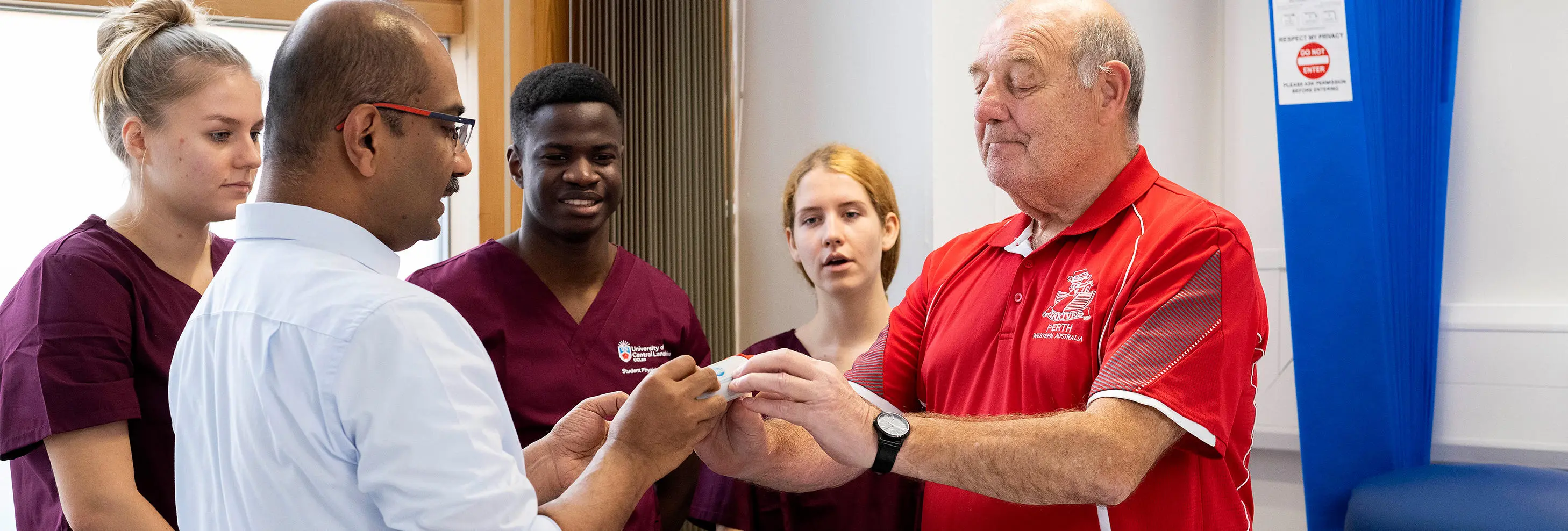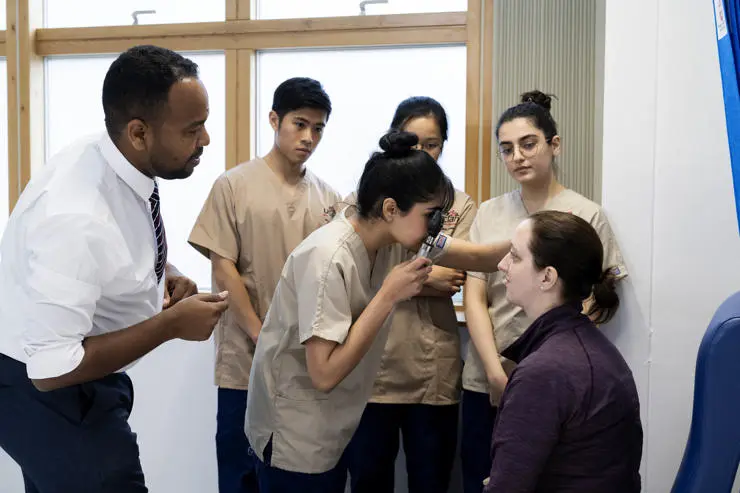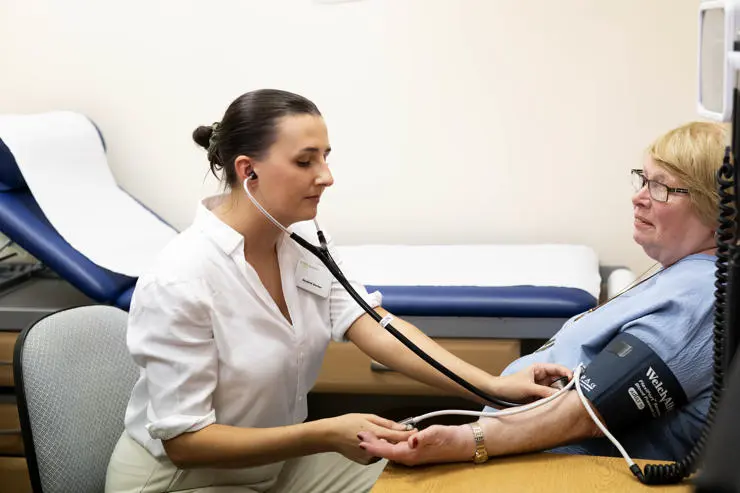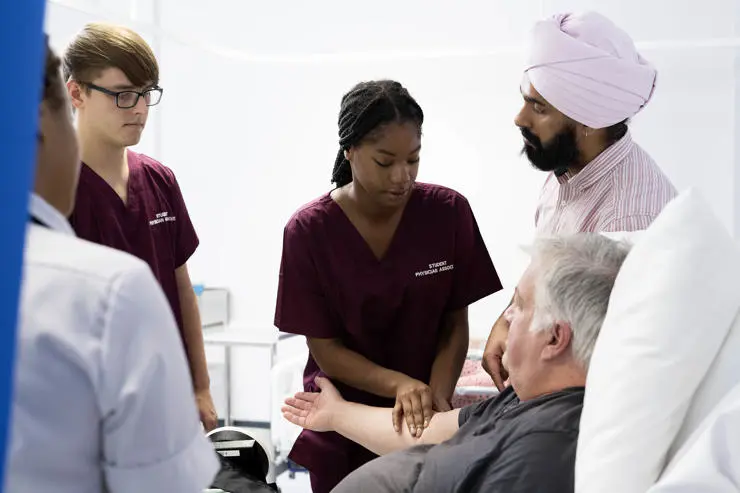UCLan is looking for volunteer patients to help train medical, physician associate and vision sciences’ students
Are you able to spare some time to help the medical professionals of the future?
The University of Central Lancashire’s (UCLan) School of Medicine is looking for volunteer patients from across the North West to assist with the training of medical, physician associate and vision sciences’ students.
The volunteer patients would need to attend one of UCLan’s three campuses in Preston, Burnley or Westlakes and allow the students to record their medical histories and, in some cases, undertake physical examinations.
Volunteers, who can commit to as many or as few sessions as they like throughout the academic year, are required to help improve the students’ communication and examination skills.
The School is looking for people from a variety of ages, ethnicities and backgrounds to reflect the patients they will be treating while on placements in the region’s hospitals and opticians.
"By working with real-life volunteers the students learn to listen to their patients’ personal experiences of health care and ask the right questions to understand their problems"
— Professor Cathy Jackson
To ensure the students carry out authentic assessments, the volunteers need to be willing to allow hands-on examinations. It is also helpful if volunteers have a range of medical conditions to allow students to gain insight and knowledge but it is not essential.
Professor Cathy Jackson said: “At UCLan, we’re training the next generation of medical professionals and we want to ensure they have excellent communication, patient care and decision-making skills.
“Research shows more than 80 percent of the diagnosis procedure is based on listening to the patient so it’s crucial our students can combine their classroom-based theory and knowledge with the hands-on opportunities.
“By working with real-life volunteers the students learn to listen to their patients’ personal experiences of health care and ask the right questions to understand their problems.
“In addition, they also have responsive bodies which are thoroughly examined away from pressured clinical environments and those volunteers can provide feedback directly to the students on their performance and behaviours.”
Once registered as a volunteer patient, invites will be sent for specific teaching sessions or assessments every month but most sessions only require a handful of volunteers.
"What I enjoy about being a volunteer patient is a feeling of self-satisfaction, that I’m actually doing some good, helping the National Health Service and helping young people develop their careers"
— Current volunteer Bill Dooley
Bill Dooley, from Burnley, is one of the current volunteers. He said: “I became a volunteer patient because I wanted to give something back to the National Health Service. Being 74 I’ve used the National Health Service for many years, and I have every confidence in it, so I decided this was an ideal way to give something back.
“What I enjoy about being a volunteer patient is a feeling of self-satisfaction, that I’m actually doing some good, helping the National Health Service and helping young people develop their careers. I’ve also learned a lot about medicine and understood a lot more about the human body.”
Chris Smith, from Penwortham, has been a volunteer patient since 2019. He commented: “It is very satisfying for me to help in the development of the students’ progression in their chosen career.”
Professor Jackson added: “Volunteering has many positive benefits for our students but also for the volunteers themselves. Our current volunteers regularly tell us that they feel they are contributing to the future of health care and are giving back to the NHS.”
If you are interested in becoming a patient volunteer, please email the team.




